Cultivated acreage trends positively in rare bright spot for Arakan’s beleaguered agrarian economy
As military conflict in the region is decreasing for the moment, some townships in northern Arakan State, such as Rathedaung, Buthidaung, Kyauktaw and Mrauk-U, are cultivating crops on abandoned farmlands.
23 Sep 2023
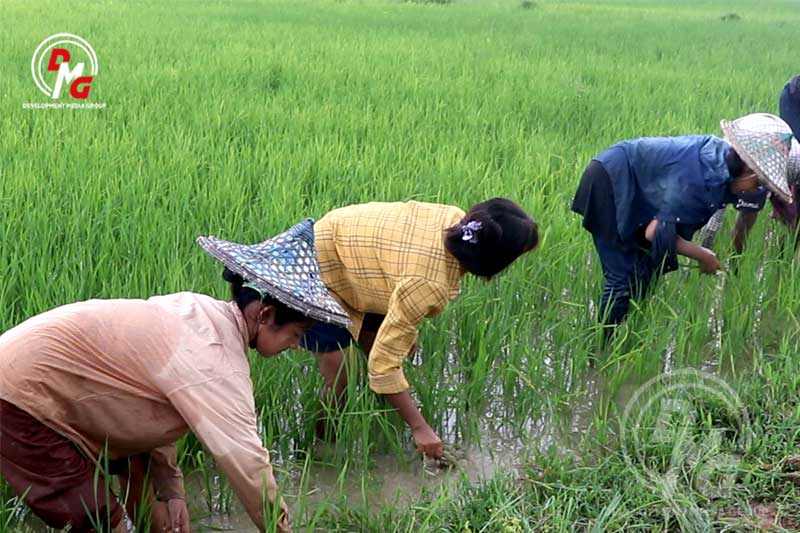
DMG Newsroom
23 September 2023, Sittwe
Locals say that in previous years, farmlands near armed camps, including areas where the fighting took place in Arakan State, could not be cultivated, but this year, locals were able to plough a few farmlands.
As military conflict in the region is decreasing for the moment, some townships in northern Arakan State, such as Rathedaung, Buthidaung, Kyauktaw and Mrauk-U, are cultivating crops on abandoned farmlands.
“Locals from some villages near Thinkyit Hill and Lin Mway Hill, where intense fighting broke out, cultivated the paddy this year. Locals have expanded cattle grazing on fields that were previously left untouched for fear of explosive remnants of war (ERWs). No cattle were hit by the landmines. So locals plough their abandoned farmlands,” said U Soe Naing, a local man from Tin Nyo Village in Mrauk-U Township.
The Myanmar military has stationed its troops at well-known ancient pagodas located on Thinkyit Hill and Lin Mway Hill in Mrauk-U Township since 2019. Farmers displaced by the fighting had to stop farming for sometimes more than three years.
This year, many local residents have been able to replant their farmlands due to the reduction of military conflicts in Arakan State.
Out of 1,400 acres of farmland in Thaungdayar Village, Rathedaung Township, 1,300 acres were planted, according to residents.
“Almost all farmlands in my village were planted this year, but about 100 acres of farmland remain uncultivated,” said U Sein Hla Maung, a local farmer from Thaungdayar Village.
Of the 700 acres that were previously uncultivable near Kyauktan Village, about 100 acres have been planted by farmers this year, according to local residents.
“Farmers didn’t cultivate their farmlands last year. In the past, farmers could not grow crops even though they had farmland, so they did not have enough food. This is the reason why some farmlands were planted by the farmers,” said a local farmer from Kyauktan Village in Rathedaung Township.
Locals also said that the other farmlands were left uncultivated because they were close to the military camps.
Farmers say they are afraid of ERWs but are working without life insurance to ensure their livelihood.
Social activists point out that the military and the Arakan Army (AA) are responsible for not only planting full acres of rice to ensure the livelihood of farmers in Arakan State, but also for expanding the cultivation.
“The farmers who are growing paddy are just investing. They are not cultivating with complete emotional security. If the paddy planted now is not harvested at harvest time, the people will have additional worries and famine will come,” said a social activist in Rathedaung Township.
Less than 900,000 out of 1.2 million acres of arable land in Arakan State could be cultivated last year due to the high cost of farming, conflict, and about 45 percent of farmlands being damaged by drought.
A total of 930,366 acres of arable land could be planted this year, according to figures compiled by the Arakan Farmers Union.




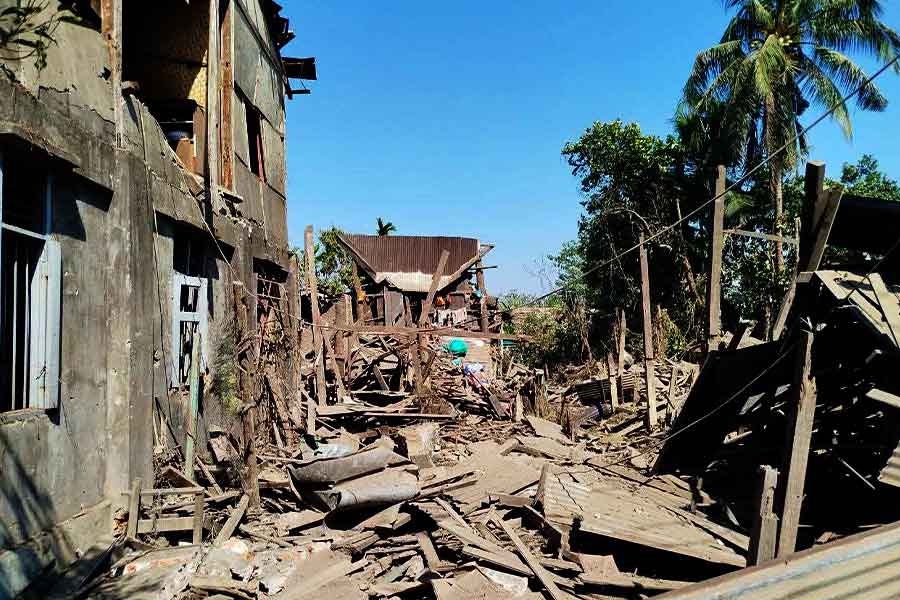
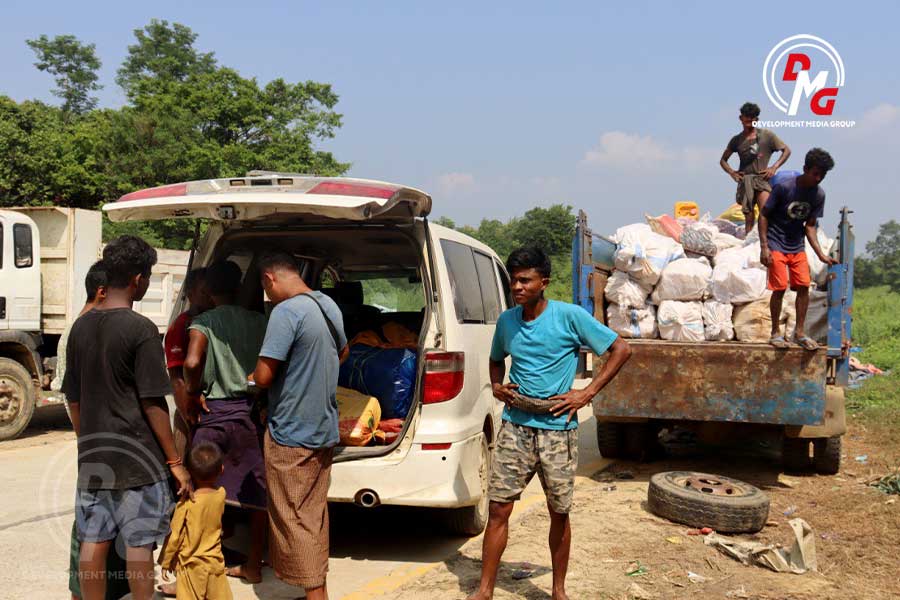
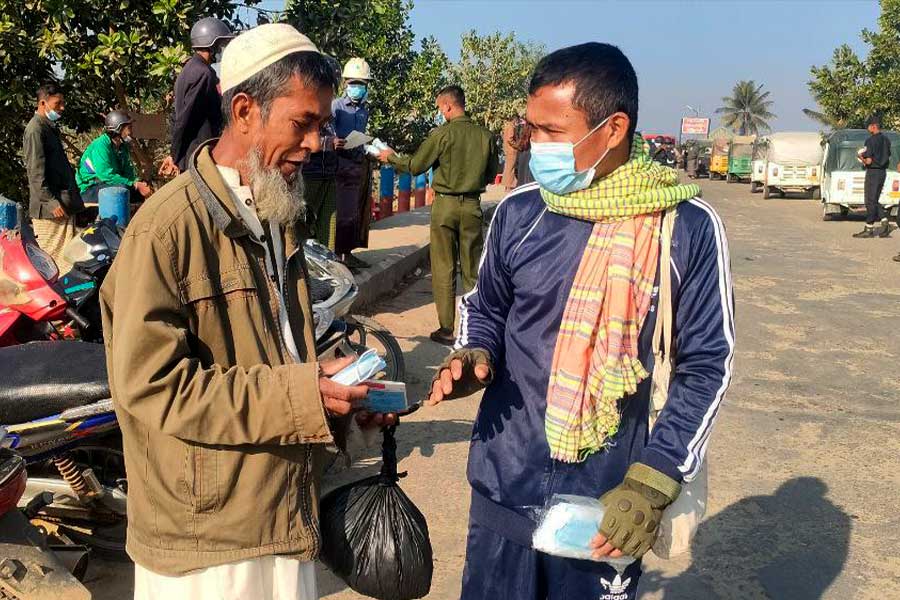
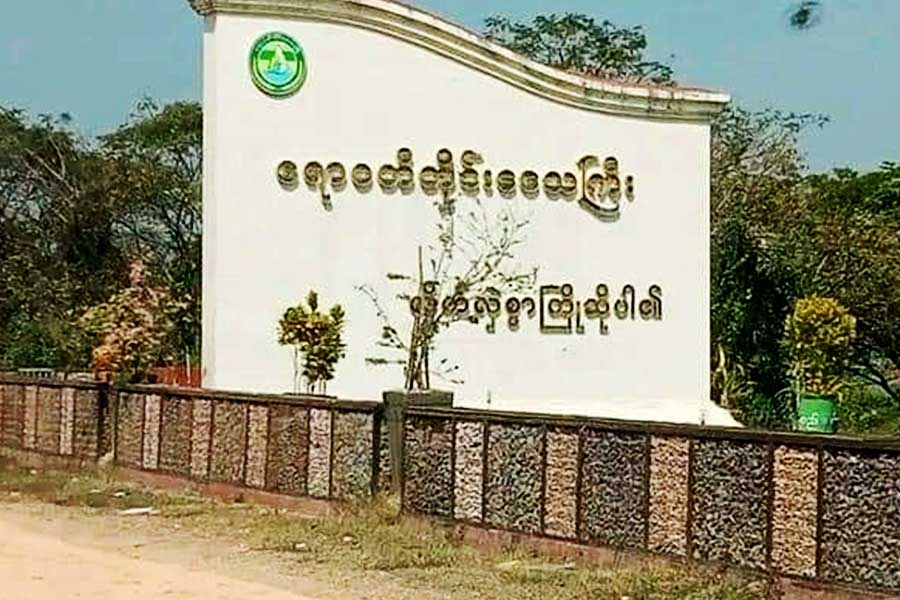








.jpg)
